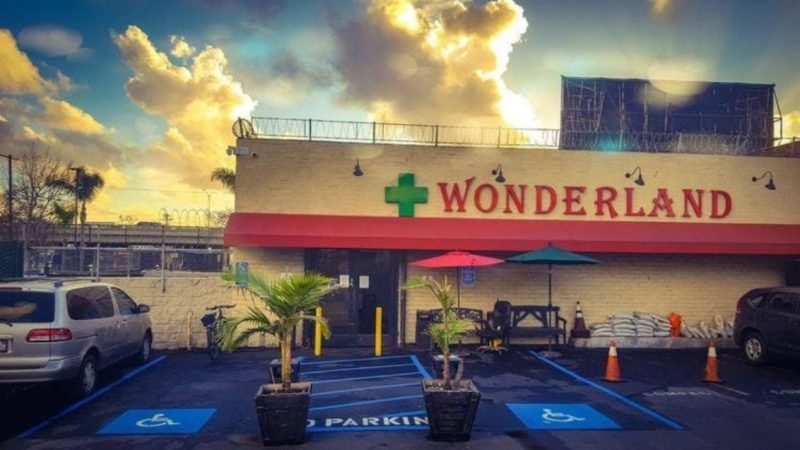The state's Cannabis Advisory Committee blames high taxes, local bans, and onerous regulations.
(Weedmaps)
Two years after state-licensed marijuana merchants began serving recreational consumers in California, those retailers account for just a quarter of the estimated market, according to a new draft report from the state's Cannabis Advisory Committee (CAC). The CAC says the lackluster progress in displacing the black market is due to a combination of high taxes, local bans on pot shops, licensing bottlenecks, and heavy regulation.
The CAC report, which was obtained by the Los Angeles Times, projects that licensed marijuana sales will total $3.1 billion this year, compared to $8.7 billion in unlicensed sales. That means the black market still accounts for nearly three-quarters of marijuana sales. Tax revenue from legal sales for the fiscal year that ended last June was just $288 million, less than a third of the $1 billion that was expected.
California legislators do not seem to have learned much from the experience of states that legalized marijuana earlier. If they had been paying attention, they would have figured out that maximizing tax rates is not a smart way to maximize tax revenue, since legal sellers have to compete with black-market dealers who do not collect any tax at all. The combination of state and local taxes currently adds as much as 45 percent to the retail price, and both the cultivation tax and the excise tax are scheduled to increase on January 1.
Three-quarters of California cities have prohibited marijuana stores, a policy allowed by Proposition 64, the 2016 ballot initiative that legalized cannabis for recreational use. Partly because of those bans, California has just 568 licensed marijuana retailers, less than a tenth of the expected number. That amounts to about 14 stores for every 1 million residents. By comparison, Colorado, where marijuana was legalized in 2012 and licensed sales began in 2014, had 572 recreational retailers as of December 2, or 100 per 1 million residents.
Even in places where pot shops are allowed, the state and local licensing process is a "nightmare," William Panzer, who co-authored California's 1996 medical marijuana initiative, told the Times. As of September, Scott Shackford noted, Los Angeles had received more than 1,600 applications from would-be retailers. So far it has granted only 188 licenses.
In addition to the licensing ordeal and the heavy taxes, says California NORML Director Dale Gieringer, legal marijuana businesses have to deal with regulatory burdens that include legally mandated middlemen, "excessively costly" testing requirements, and "multifarious petty regulations" regarding storage, security, transportation, labeling and packaging, financial reporting, and waste disposal. "Illegal retail operations outnumber legal shops 3-to-1," Lindsay Robinson, executive director of the California Cannabis Industry Association, told the Times. "Almost two years into legalization, we continue to be plagued by local bans, untenable taxation, onerous regulations, an illicit vape crisis, slow growth, and a thriving illicit market."
So far the main official response has been a crackdown on unlicensed sellers, perpetuating a war on weed that Proposition 64 was supposed to end. The CAC is urging the state to consider tax and regulatory relief, possibly through a new ballot initiative. Legislation introduced in January would temporarily reduce the excise tax from 15 percent to 11 percent and temporarily eliminate the cultivation tax, which is currently $9.25 per ounce for buds and will rise by 40 cents on January 1. That bill is still bottled up in committee.
Gov. Gavin Newsom (D), who says he is sympathetic to the complaints of marijuana business owners, is mostly preaching patience. But the lesson from California's bumpy rollout of legal marijuana should be clear: The harder the government makes it to sell pot legally, the larger the continuing black market will be.


